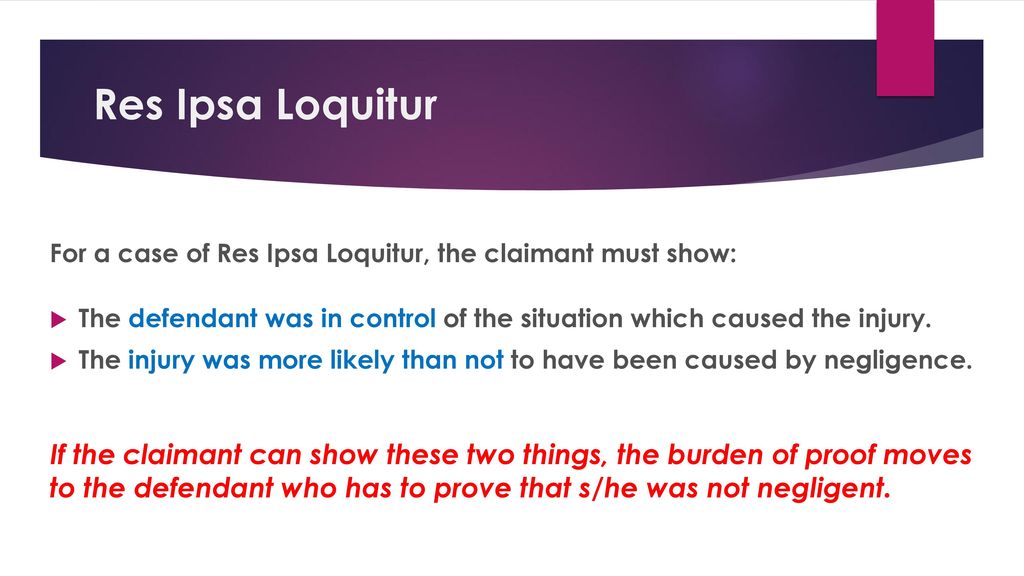DOCTRINE OF RES IPSA LOQUITUR
The doctrine of Res Ipsa Loquitur, a Latin term meaning "the thing speaks for itself," is a critical legal principle primarily applied in tort law. This doctrine allows the court to infer negligence in absence of direct evidence based on the very nature of an accident or injury. Essentially, if the circumstances of an event suggest that negligence has occurred, the burden shifts to the defendant to prove that they did not act negligently.
Key Elements of Res Ipsa Loquitur
-
The event is of a type that does not normally occur without negligence: For instance, if a patient undergoes surgery and wakes up with a foreign object left inside their body, this situation typically suggests some level of negligence has occurred since such an event is not expected under normal circumstances.
-
The instrumentality or agent that caused the injury was under the control of the defendant: For the doctrine to apply, it must be shown that the incident occurred under the control of the defendant, hence this element can often be pivotal in establishing the linkage between the defendant's actions and the injury.
-
The plaintiff did not contribute to the cause: The plaintiff must demonstrate that they were not responsible for the incident, solidifying the attribution of negligence to the defendant.
Practical Applications
Res Ipsa Loquitur serves as a significant tool in cases where direct evidence of negligence is challenging to procure, such as medical malpractice or specific accidents. The doctrine allows courts to rely on circumstantial evidence that suggests failure in duty of care without requiring concrete evidence of specific negligent actions by the defendant.
Examples in Law
Courts have utilized Res Ipsa Loquitur in various landmark cases. For example, in medical malpractice lawsuits, if a surgical sponge is found in a patient's body after surgery, the circumstances may lead the court to rule in favor of the patient under this doctrine. Furthermore, this presumption of negligence can create a more favorable position for plaintiffs, as they do not bear the full burden of proving negligence from the outset.
For a deeper understanding and additional context, pertinent resources include articles from the Legal Information Institute (LII), Wikipedia (Wikipedia), and detailed insights from FindLaw (FindLaw).
In summary, Res Ipsa Loquitur positions itself as a powerful legal doctrine within tort law, allowing courts to make inferences about negligence based on the nature of the event, thereby facilitating justice in cases where direct evidence may be lacking.
Sources


Related Questions
Work fast from anywhere
Stay up to date and move work forward with BrutusAI on macOS/iOS/web & android. Download the app today.
